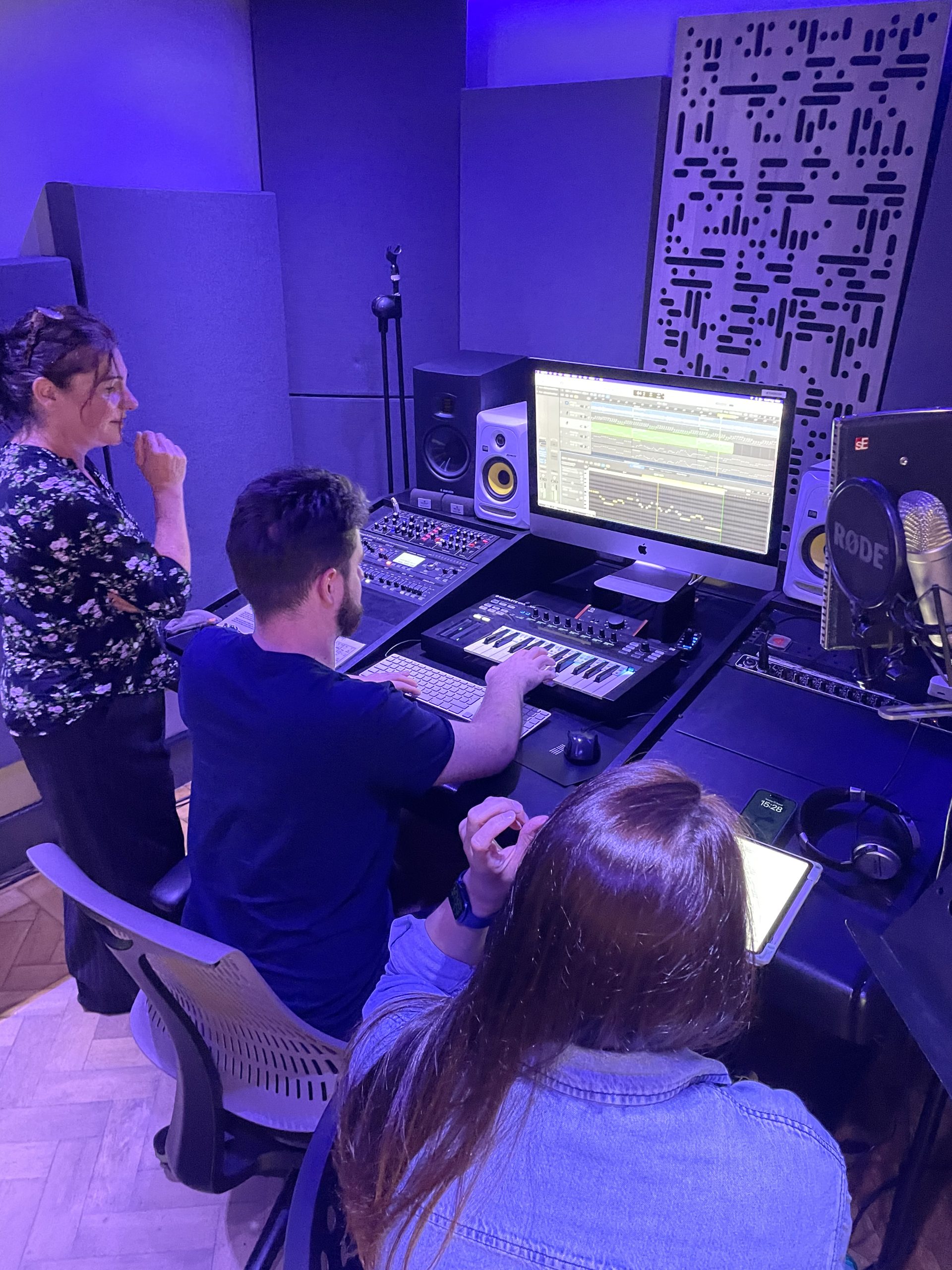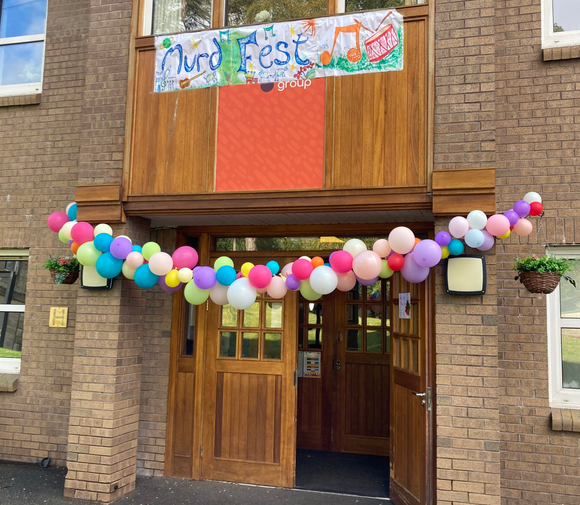How BPM Rehab and Chroma’s music therapy collaboration redefined brain injury rehab

It isn’t often that a single intervention completely reshapes the course of rehabilitation for an individual, but the collaboration between BPM Rehab and Chroma succeeded in this.
By blending music therapy with the power of songwriting and professional music production, they have helped clients not only reclaim memories and emotions but also redefine their sense of identity and purpose.
Overview of the collaboration:
The collaboration was born from the therapeutic use of songwriting at Chroma, where programme directors recognised the opportunity to partner with BPM Rehab, allowing clients to record one of their original songs.
Chroma’s clients were invited to share a song that they had written during or as part of their therapy process to be professionally recorded and placed in a compilation EP.
This served to encourage client’s out of their comfort zone, providing them with a new and exciting opportunity and means to share their work.
Daniel Thomas, managing Director of Chroma reflected: “The collab between Chroma and BPM Rehab was of the highest level, with even the smallest of details thought through and… dealt with in a warm, accommodating way.
“We are already looking forward to doing it again in 2025.”
Project goals and methodology:
Music therapy and rehabilitation effort have the power to aid emotional processing, improve memory recall, and empower clients through songwriting and performance, seen extensively through the work at BPM and Chroma.
The primary objectives for the collaboration were therefore to further this, allowing clients to actively engage in the creation of their own song.
The aim was to facilitate emotional processing by providing a fun, cognitive activity for them to learn skills in electronic music, expanding on the techniques they had already learnt from the traditional music therapy that they have been offered at Chroma.
The process of recording and producing the songs was designed to be fully inclusive, ensuring clients were involved from start to finish, even if they couldn’t attend the studio in person.
Therapists were asked to put forward clients interested in having their songs professionally recorded and produced.
Each client submitted a demo of their song, which was shared with the production team to familiarize them with the material ahead of the recording session.
Of the six clients, all but one had a traumatic or acquired brain injury.
Each client was offered a half-day studio session, during which they were fully engaged in the recording and production process.
They had complete creative control, supported by the studio team and their support workers.
For one client who couldn’t attend in person, her song was produced remotely, with her and her therapist contributing via demo submissions, ensuring that everyone had a chance to bring their musical vision to life.
Client stories and outcomes:
Client 1:
Client 1’s journey with the Chroma and BPM Rehab collaboration was nothing short of transformative.
Four years after suffering a brain injury, they unintentionally approached a challenge they hadn’t tackled in years- climbing stairs.
Despite having health and safety checks before the collaboration began, on the day of the recording, the studio was only accessible up two flights of stairs.
Client 1’s ataxia had made mobility difficult, but the motivation to record their song in a professional studio motivated them to overcome this physical barrier.
Supported by his care team, client 1 made it to the studio, a moment that symbolised much more than simply walking up stairs.
It was a testament to how meaningful rehabilitation experiences, like music therapy, can motivate potential for growth in goals.
This experience also encouraged client 1 to stay overnight in Manchester, something that they had not done post-injury.
This highlights the impact of having a meaningful goal to strive for. Recording a song in the studio was so meaningful and encouraging, it enabled client 1 to break down barriers, demonstrating the experience as a huge facilitator for improvement.
Client 1’s song, “The Bad Old Days,” was a reflection on life before their brain injury, with the song acting as a vehicle for emotional processing and self-reflection.
Music therapy helped them shape the piece, and with Leo, the music producer they called “the doctor”, the rough GarageBand draft was transformed into a professionally produced track.
This intervention not only helped client 1 process trauma from the injury and from life beforehand, but also reignited their passion for music, allowing expression of identity through a solemn yet catchy track with reflective, reggae-inspired vibes.
Perhaps the most significant impact of the project was how it reshaped their rehabilitation journey.
Client 1’s care team, witnessing his capabilities and the deep connection he had with music, began re-evaluating his care plan to make it more meaningful and aligned with his passions.
Their progress over the past 10 months has been profound, with the introduction of music therapy serving as a ‘turning point’.
The experience of recording in the studio, an environment they had not been in for a decade, brought client 1 back to a place of comfort and creativity, reflecting on it as a “safe space”.
Client 2
Client 2’s experience with music therapy has helped them reclaim aspects of life that had been overshadowed by severe memory impairment and language difficulties.
They struggled with daily disorientation and a category-specific expressive aphasia, but through Neurologic Music Therapy (NMT) techniques, learned to associate key pieces of information- names of people and events, with musical and phonemic prompts, significantly improving recall ability.
These small prompts, woven into the songs they worked on, became a lifeline to memories that once seemed lost.
Though client 2 was unable to attend the recording studio due to health reasons, they were deeply excited to hear that their song was being professionally recorded.
The music therapy sessions that led up to this moment had a lasting impact on their confidence and self-expression, and also provided recall opportunities.
It was in the process of creating and recalling through music that strengthened their connections to the people in their life and helped restore a sense of self that had been diminished following injury.
This underscores the importance of having their song recorded, that so much progress led up to this opportunity that having a tangible outcome is extremely meaningful.
Broader implications of the collaboration:
The collaboration between BPM Rehab and Chroma exemplifies how partnerships between music therapy providers can significantly enhance therapeutic outcomes.
The level of thoughtfulness and care that went into accommodating the specific needs of clients, from emotional expression to physical accessibility, highlights the potential of such collaborations to create personalized and impactful interventions.
This partnership not only showcased the power of music as a therapeutic tool but also demonstrated the importance of tailoring the experience to meet individual needs, resulting in profound progress for clients involved.
Looking forward, this project serves as a potential model for future therapeutic interventions.
The success of integrating songwriting, music production, and client-centred care could inspire similar initiatives in the field of rehabilitation, where music therapy can be used to create more meaningful and engaging rehabilitative experiences.
By focusing on the interests and abilities of clients, projects like this may help drive innovation and lead to better long-term outcomes across various therapeutic contexts.
Credit:
Article writer:
Sarah Lake, Research Assistant- sarahlake@kompass.health
Collaboration coordinators:
Daniel Thomas and Mandy Pearce- Chroma
Mark Blundell and Dr Penny Trayner- BPM Rehab







